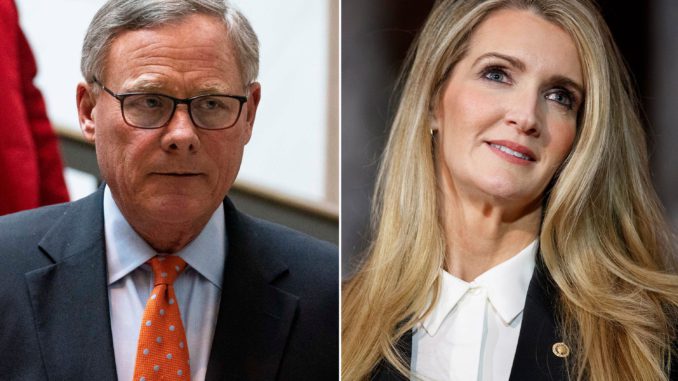
By Andrew M
For those of us prone to giving in to the temptations of listless Twitter scrolling these days, there’s no shortage of intrigue. For every ordinary civilian offering some ray of hope with a selfless act of kindness, there’s an emblem of just how inhumane our economic and legislative systems can be–how far from reasonable compassion the imperatives of economic power have driven the most powerful among us.
It’s been noted that an emergency like the one in which we’re presently engaged doesn’t create systemic problems, but exposes and intensifies them. So to learn that Senators Richard Burr, Kelly Loeffler, Diane Feinstein and Jim Inhofe, recognizing a coming public health and economic crisis they assured the public was not a concern, sold stocks worth millions of dollars, resonates less as a singular act of criminality and more as an indictment of an incomprehensible system.
The details of the senators’ actions range from cynically expected, to darkly comic, to alarmingly merciless: Senator Burr said he relied only on publicly available information and did nothing unethical, welcoming any investigation. Senator Feinstein noted that her stock is held in a blind trust, and that she doesn’t have any control over its management. Senator Loeffler–the truly comic figure in all of this whose husband is the Chairman of the New York Stock Exchange–pleaded a similar ignorance, and actually purchased some stock in (wouldn’t you know it) teleconferencing services.
It should be said that the details matter. Comprehensive reporting would note that not every act of malfeasance is created equal. ProPublica, which broke the story, notes that Senator Feinstein’s husband sold only one stock, and apparently at a loss (the valuation was, however, still in the millions). And it’s entirely possible that these senators don’t walk around as hatefully as I’m imagining them, that their financial portfolios are managed by astute professionals who saw the writing on the wall, even as the senators themselves assured the public that all was well.
It’s still hard not to loathe these people, and everything they stand for. Even assuming the best in each of them, they continue to display an astounding ability to disassociate from the realities of everyday life for the vast majority of people in this country. Senator Loeffler, with an exasperating lack of irony, tweeted a selfie video with a caption that read, in part, “During these times, it’s the small, positive moments that remind us why we must stay strong.” Senator Burr’s response has been heavy with a righteous indignation that bears all the hallmarks of a person who very much believes in his own personal cosmic centrality, and the last time I heard anything about Senator Feinstein, she was yelling at a child in her office.
And of course it’s unclear (if not unlikely) whether any of these people will pay a price. NPR notes that the legality of their action depends on the use of private information to inform stock decisions. Senators can have access to classified information; the Constitutional speech or debate clause may afford them the protection and freedom to privately deliberate in this instance; the argument could be made that the private information received didn’t apply to individual stocks or markets, but to a broad economic occurrence, and so may not technically constitute insider trading.
So, in some sense, color me resigned. But still: there’s important value in exposing and examining the overwhelming wrongness in all of this. People across the political spectrum have now said forcefully that it’s unacceptable for elected officials to legally own individual private stocks. Period. That’s a start. But that aside, along with the separation of individual wrongdoing, what do we take away?
In reporting on Senator Burr’s actions immediately following his initial CoronaVirus briefings, NPR obtained secret recordings in which Burr warned members of an elite social club of the virus’s tenacity. In all the shameful, self-serving financial criminality that was to come, this is what has stuck with me most: Before anyone touched a dime, a group of “top leaders and staff from Congress, the administration, and the private sector,” who reportedly pay between $500 and $10,000 for membership to a club called The Tar Heel Circle, were warned of a coming pandemic over a fancy lunch. This is the systemic reality that our current crisis has put into sharp relief: that there are two Americas, divided by power, and every step forward we take should be in the service of eliminating that detachment.
